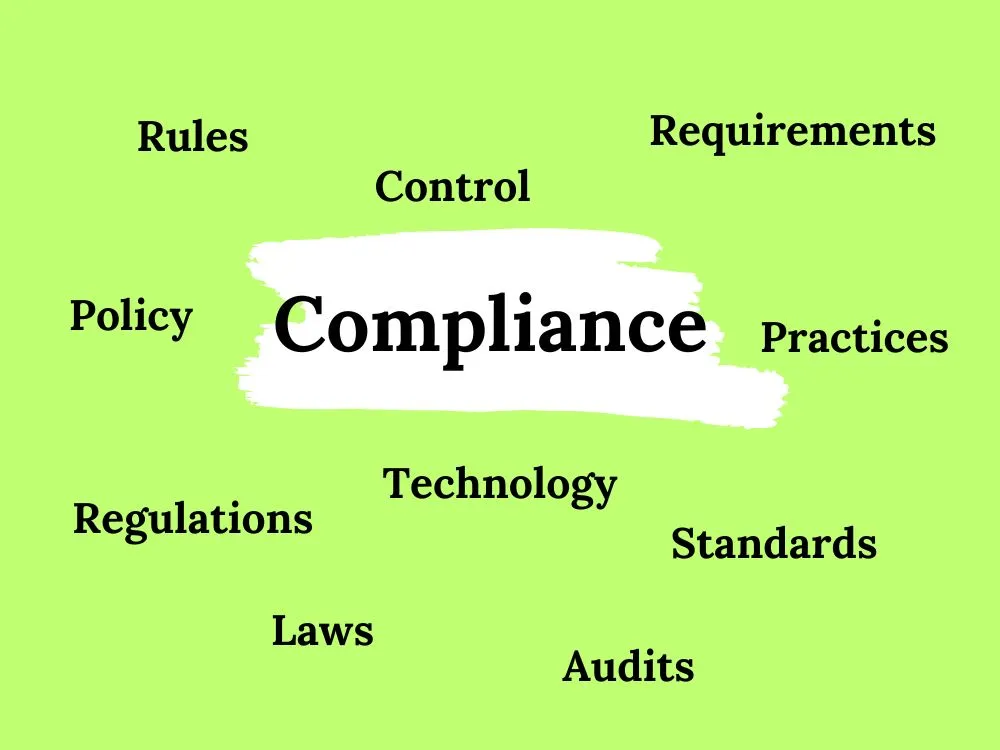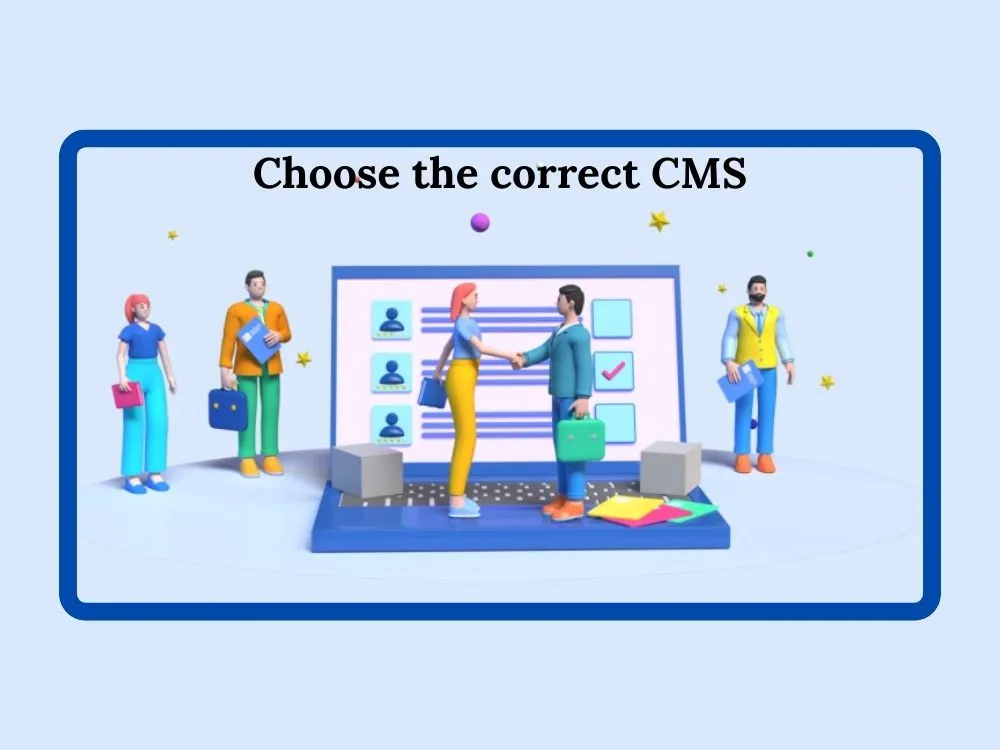
A Complete Guide to Effective Compliance Management
Compliance management is a critical concept every business organization must understand. It’s all about ensuring that business firms adhere to essential rules and regulations that enable operations to run smoothly. These rules encompass legal, ethical, and industry standards, all of which organizations are obligated to follow.
Simply, compliance management is the game plan for staying within the boundaries of what’s required. These legal requirements, ethical guidelines, and industry norms work together to keep business activities better while shielding organizations from legal and regulatory troubles.
Moreover, by ensuring compliance, businesses can avoid unnecessary legal penalties and risks that could disrupt their operations.
Key Takeaways
- Understand the concept of compliance management and its importance for businesses.
- Explore the key components of compliance management including compliance management system (CMS) and its benefits.
- Identify how to choose the right compliance management solution including a case study example for successful implementation.
- Recognize the challenges, ways to overcome challenges, technology integration, and future trends in compliance management.

Importance of Compliance in Today's Business Landscape
Without a doubt, compliance is highly important for business organizations because of its necessity and benefits. Failing to comply with mandatory legal, ethical, and industrial rules and regulations can significantly impact the business.
Therefore, every business organization focuses more on establishing compliance management in their firms. To streamline this, many adopt compliance automation software for faster, consistent enforcement. In addition to this, compliance brings several benefits to an organization such as:
- No legal Headaches: Staying compliant prevents organizations from costly legal issues and fines. This lets business owners focus more on their primary objectives with fewer legal headaches.
- Increasing Customer Base: Trust is a crucial thing for increasing customer base. When a company complies with all legal and industrial norms, customers' trust in the business increases. In return, there will be increased customer loyalty and a growing customer base.
- Reputational Enhancement: Just think about a business firm that breaches legal terms, do you see that business as a fair entity in the market? Obviously no, right? Likewise, if a company always complies with legal terms, it can be viewed as a reputed organization without a second thought.
- Boosting Profitability: As compliance management increases the customer base and company reputation, it also helps increase sales and profitability.
- Operational Efficiency: Compliance processes streamline internal operations and they reduce the risk of errors and inefficiencies that contribute to overall operational efficiency.
- New Market Access: Compliance is certainly a prerequisite for entering certain markets or partnering with key industry players. To expand business opportunities and access new markets, organizations must need compliance.
- Employee Morale: A commitment to compliance can signal a commitment to a safe and fair workplace that boosts employee morale and engagement.
These are some common advantages an organization gets when it relies on compliance. Also, these benefits consolidate the reason for organizations to comprehend the importance of compliance and adhere to it.
Key Components of Compliance Management

Compliance Management System (CMS)
A compliance management system (CMS) is inevitable to make things simple for businesses. It effectively helps organizations maintain legal and regulatory compliance. Think of a Compliance Management System as the superhero for keeping everything in check.
It's not just a software tool, apart from that, it includes documents, certain processes, and functions. A CMS is like having your assistant, but instead of scheduling meetings, it makes sure your business stays on the right side of the rulebook.
The Power Players in a Compliance Management System:
- Policy and Procedure Management: This is the rulebook. It lays down the do's and don'ts which make sure everyone's on the same page.
- Risk Assessment: This is a crucial aspect to consider. It predicts potential risks and helps organizations mitigate them. It's like the guardian of your business strategy.
- Training and Awareness: It's not just about having rules but it's about making sure everyone knows them. This part ensures your team is the A-team when it comes to compliance.
- Monitoring and Auditing: Think of it as your business detective. It keeps a close eye on operations and ensures everything is running as per the compliance script.
- Incident Response: Even with the best plan, sometimes things go sideways. This part is your emergency hotline that is ready to tackle any curveballs thrown your way.
Benefits of Implementing a Compliance Management System
A compliance management system helps streamline the business process and it is crucial to integrate the system in an organization to acquire several benefits. A CMS isn't just software but it's the key to achieving regulatory compliance.
Let’s explore the following points to understand how a CMS can elevate your business:
- Centralized Control: Imagine the ease of managing and overseeing compliance requirements from a centralized hub. A CMS can ensure this efficiently.
- Automated Processes: The CMS reduces manual errors and automates everything related to compliance.
- Real-time Monitoring: Stay ahead of the compliance curve with real-time monitoring. Receive instant alerts which allows you to tackle potential risks before they turn into headaches.
- Easy Documentation: A CMS is helpful to safely store and organize compliance-related documents which simplifies audits.
- Proactive Risk Mitigation: The CMS isn't just a system but it's your proactive partner in risk mitigation. It helps easily identify and tackle potential risks through integrated risk assessment tools that empower better decision-making.
- Customizable Reporting: Customize reports to align with your unique business needs and regulatory requirements. You can generate detailed compliance reports effortlessly which showcase transparency and accountability.
Implementing a Compliance Management System isn't just a technological upgrade but it is a strategic move towards a compliant and efficient future. Maximize the potential of your business by embracing the benefits that a robust CMS brings to the table.
Choosing the Right Compliance Management Solutions

Evaluating Compliance Management Solutions
Compliance management solutions are important for helping organizations stay on top of legal, regulatory, and internal requirements. When evaluating these solutions, it’s not just about the features but you also want to make sure they fit what your organization needs and can adjust as things change.
Here are some key considerations for evaluating compliance management solutions:
- Strategic Alignment: Find out whether the solution addresses specific compliance challenges within your organization.
- Regulatory Adaptability: Ensure that the solution meets the current laws, and choose a system with the ability to comply with any future changes in such laws.
- Scalability: Choose the solution that is likely to develop or scale along with the company to accommodate complicated issues.
- Flexibility: Choose a system that can adjust to evolving compliance needs without requiring extreme modifications.
- Ease of Use: Check that the interface is user-friendly so that your team can use it fairly quickly and therefore operate it effectively.
- Reliability: Track record of the solution including end-user reviews and case studies to ensure that it provides dependable performance.
- Integration Capabilities: The solution should integrate seamlessly with your existing systems and workflows. This is vital to reduce disruptions and improve efficiency.
- Support and Training resources from vendor: Check the availability of vendor support and training resources to ensure effective implementation and use.
Case Studies of Successful Implementations
The following case study examples can interpret the context more clearly. Let's dive into the case study examples:
Case Study 01: Acme Manufacturing Solutions
Industry: Manufacturing
Acme Manufacturing Solutions is a prominent player in the USA manufacturing sector which successfully addressed compliance challenges through the strategic adoption of a cutting-edge compliance management solution.
This company is operating in a highly regulated environment, Acme Manufacturing aimed to enhance compliance efficiency and ensure adherence to evolving industry standards.
Challenges Faced:
- Varied and evolving regulatory requirements in the US manufacturing landscape.
- Managing compliance across multiple facilities in different states.
- The risk of penalties and reputational damage due to non-compliance.
Solution: Acme Manufacturing selected a comprehensive Compliance Management Solution that matches the complexities of the US manufacturing industry. The solution featured real-time tracking, automated reporting, and specialized modules to address region-specific regulations. This centralized approach allowed Acme Manufacturing to maintain consistency and compliance across all its facilities.
Results:
- Achieved a 25% reduction in compliance-related incidents.
- Real-time monitoring and reporting led to proactive issue resolution and prevented potential regulatory violations.
- Streamlined audit processes, resulting in significant time and cost savings.
- Enhanced reputation within the industry, attracting new partnerships and business opportunities.
Case Study 02: Financial Guard Services
Industry: Financial Services
Financial Guard Services is a dynamic financial institution based in the USA, that successfully overcame compliance challenges through the strategic implementation of a Compliance Management Solution.
This company is operating in the highly regulated US financial sector, Financial Guard Services sought a solution that would not only ensure strict adherence to regulations but also improve overall operational efficiency.
Challenges Faced:
- Stringent financial regulations in the US require good documentation and reporting.
- Manual processes lead to errors and delays in compliance activities.
- The challenge of keeping pace with rapidly changing compliance requirements.
Solution: Financial Guard Services invested in a good Compliance Management Solution designed to meet the unique demands of the US financial industry. The solution's automated documentation processes provided real-time compliance tracking and offered a customizable framework to adapt to evolving US regulations.
Results:
- Achieved a 20% reduction in compliance-related costs.
- Accelerated response to changes in US regulatory requirements.
- Improved customer trust and loyalty through transparent compliance practices.
- Streamlined internal workflows, enhancing overall organizational efficiency.
The case studies indicate the successful implementation of compliance management solutions at their respective organizations to reap the best results by eradicating the challenges.
Overcoming Challenges in Compliance Management

Common Challenges Faced
Challenges are common when ensuring compliance with regulatory requirements. So, organizations need proper strategies to evade these challenges to ensure good compliance management. Let’s see what type of challenges are faced by companies:
- Complex Regulations: Understanding and following rules can be tricky, especially with many rules changing often. Using smart tools that adapt to new rules, and training your team regularly can make it simpler.
- Employee Understanding and Adherence: It is essential to make sure everyone in the team knows and follows the rules. Regular and easy training helps. Plus, using simple tools makes it easier for everyone to do the right thing every day.
- Data Security and Privacy Worries: Keeping information safe is a big concern. Following all necessary data protection rules and strong security measures, like encrypted communication can help protect information and keep things compliant.
- Keeping Up with Technology: Technology is always changing, which can be challenging. Using new tech tools, like AI and machine learning to help with routine tasks, and making sure everyone knows the latest tech through training. It helps businesses stay on top of things.
By keeping things simple, training regularly, and using smart tools, businesses can face and overcome these challenges which ensure they follow the rules and keep everything running smoothly.
Integrating Technology for Seamless Compliance

The Role of Technology in Compliance Management
Without a doubt, technology plays a major role in compliance management. It effectively helps automation and boost productivity. With the help of technology, everything becomes easy and saves enough time.
Compliance management requires time bounding and effective solutions. Therefore, organizations should focus on establishing systems to ensure the necessary rules and regulations are complied with. Therefore, it is essential to integrate technology in the process to match the changing regulatory requirements.
Let's see a case study example for a company that has successfully integrated technology for compliance management.
Case Study: Tech Synergy Solutions
Industry: Financial Services
Challenge: Tech Synergy Solutions, one of the leading financial institutions in the USA faced many challenges in navigating the complex set of financial regulations. The manual processes were prone to many errors, and the increasing complexity of compliance requirements was becoming a significant operational hurdle.
Solution: The solution they opted for was 'Embracing advanced technology'. Tech Synergy Solutions implemented the finest Compliance Management System. The system leveraged automation to streamline regulatory processes that ensure real-time tracking and adherence to the latest financial regulations. Employee training programs were also conducted to familiarize the team with the new technology.
Results:
- They could able to achieve a 30% reduction in compliance-related errors.
- Enhanced the overall efficiency with automated documentation and reporting processes.
- Real-time monitoring enabled them to proactive responses to regulatory changes.
- Significant time savings and it allowed the team to focus on strategic initiatives.
Impact: Tech Synergy Solutions not only achieved good compliance but also witnessed a transformative impact on overall operations. The technology-driven approach not only mitigated compliance risks but also positioned the company as an industry leader in adopting innovative solutions. The success story of Tech Synergy Solutions serves as a very good example for other financial institutions that are navigating the complexities of compliance.
Future Trends in Compliance Management

Evolving Landscape
The future of compliance management is different and it keeps on evolving. It is driven by technological advancements and anticipated changes in the regulatory environment. Looking ahead, the way we handle the necessary rules and regulations is continuously changing.
Imagine using smart technology tools like Artificial Intelligence and Blockchain to make things easier. As rules continue to shift, business organizations need to be more flexible, staying ahead with these smart tools to make sure they not only keep up but stay one step ahead of the game.
It's like having a helping hand in a world where rules are always changing which makes things simpler and smarter for everyone.
Wrapping Up
The importance of compliance management is inevitable. Every business must comply with the necessary rules and regulations to successfully run their business operation. Compliance management brings several benefits to an organization such as fewer legal headaches, increased customers, a good reputation, increased profits, operational efficiency, and many more.
Organizations choose a compliance management system (CMS) to ensure the process in a correct way which reduces manual compliance errors. A CMS includes several things such as policy and procedure management, risk assessment, training and awareness, etc.
It is important to choose the right compliance management solutions to successfully mitigate unwanted challenges. Moreover, businesses face many challenges while managing compliance which needs proper methods and technological solutions to fix.
FAQs
Q1: Why is compliance management important?
Compliance management is important because it prevents legal complications, builds trust, enhances reputation, increases profitability, streamlines operations, and boosts employee morale.
Q2: What benefits does a compliance management system offer?
A compliance management system (CMS) can streamline processes, provide centralized control, automate tasks, enable real-time monitoring, ensure easy documentation, and facilitate proactive risk mitigation.
Q3: What challenges do organizations face in compliance management?
Organizations go through several challenges such as understanding complex regulations, ensuring employee adherence, addressing data security concerns, and keeping pace with evolving technology.
Q4: What are future trends in compliance management?
Future trends involve things like integrating smart technology tools like AI and Blockchain that can simplify compliance processes and necessitate flexibility for businesses to adapt successfully.
Explore Related Articles
https://smarttoolsai.com/post/risk-management-plan-for-your-high-risk-business
.webp)